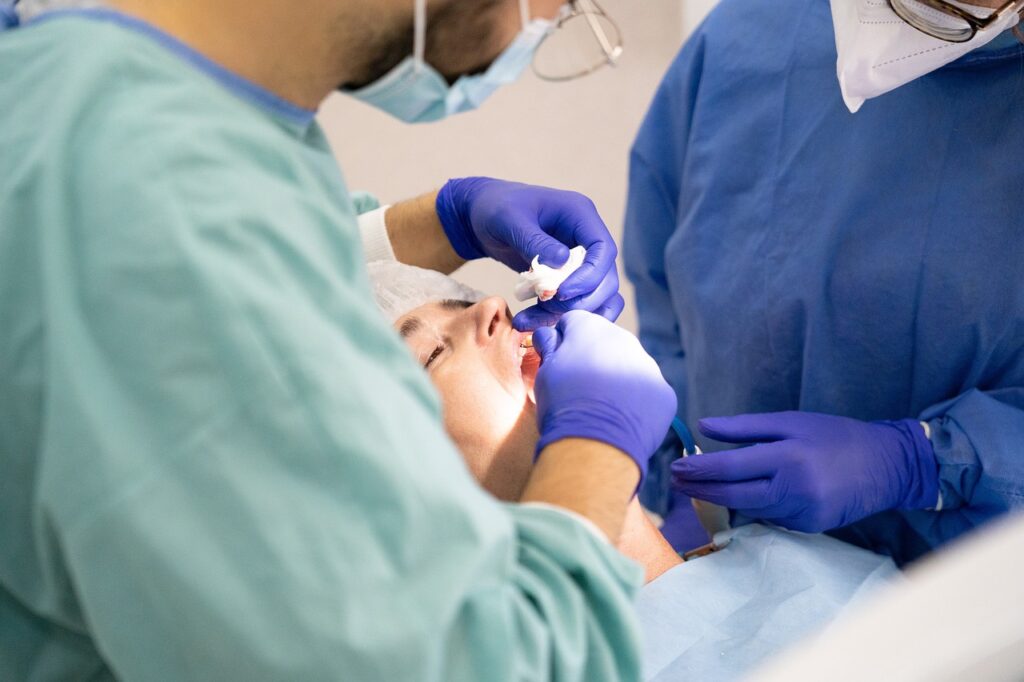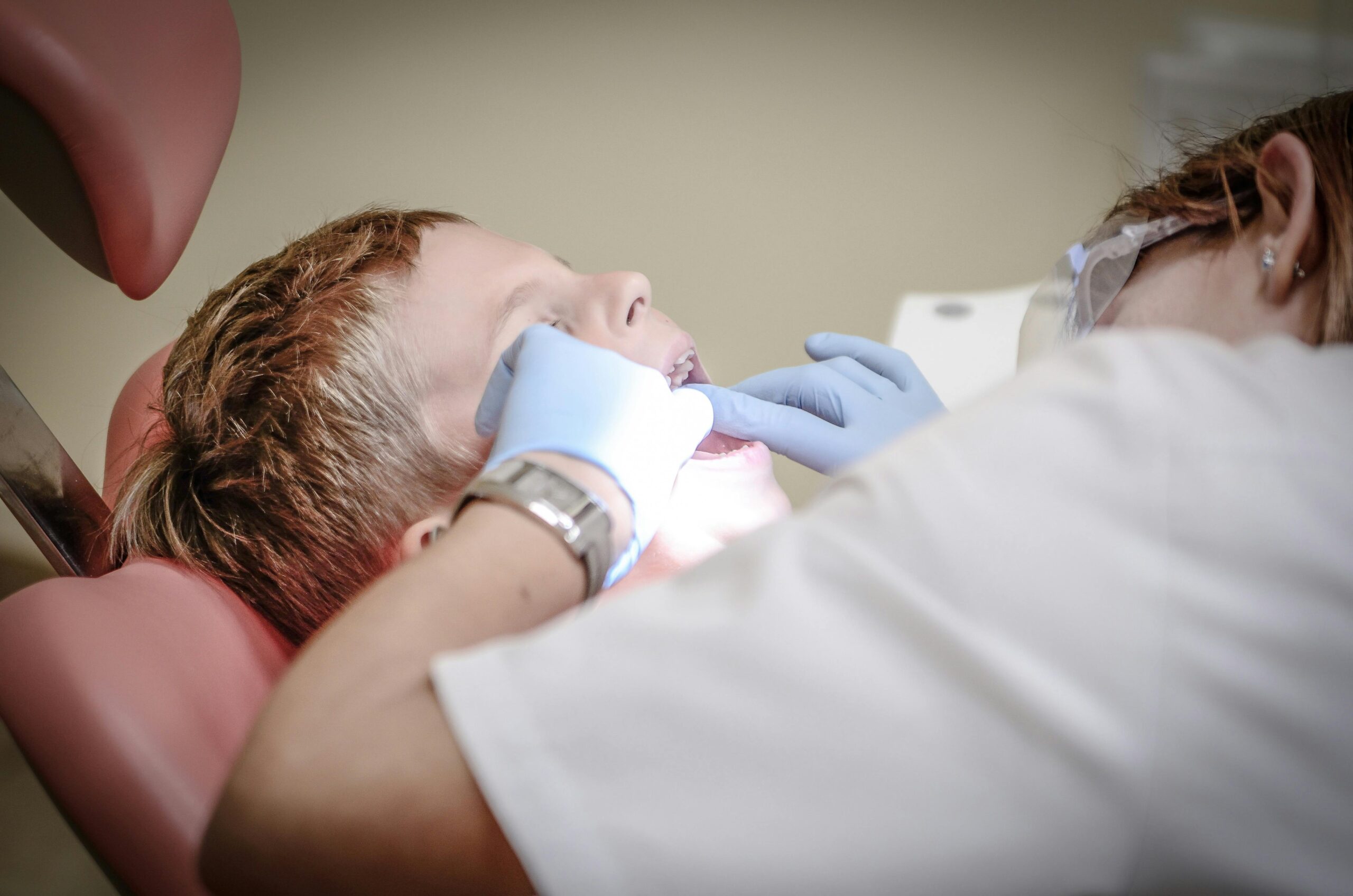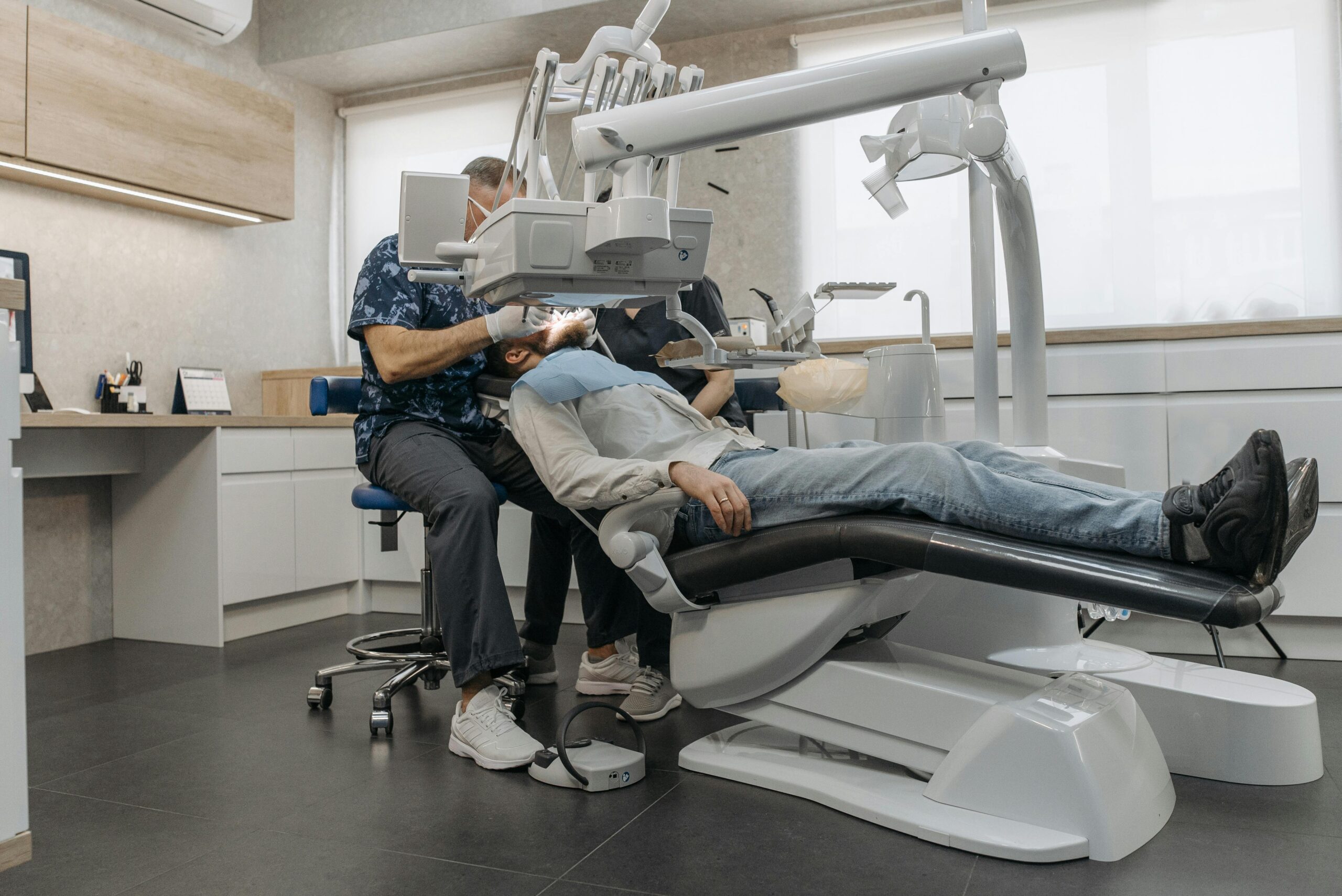How to become an Orthodontist: Complete Guide

Introduction
In the field of dentistry, orthodontics stands out as a specialized branch focused on correcting irregularities in teeth alignment and bite patterns. Orthodontists play a crucial role in enhancing oral health and aesthetics by diagnosing, preventing, and treating dental and facial irregularities, such as malocclusions and misaligned teeth. With a growing emphasis on achieving straighter smiles and proper bite function, orthodontics continues to be in high demand. If you’re interested in pursuing a career in orthodontics, this complete guide will walk you through the steps to become an orthodontist, covering everything from the required education and training to the practical skills needed to excel in this rewarding profession.
Who is Orthodontist and what do Orthodontist do?
Orthodontists are dental specialists who focus on the diagnosis, prevention, and treatment of dental and facial irregularities, particularly those related to teeth alignment and bite patterns. They play a critical role in improving oral health and aesthetics by helping patients achieve straighter smiles and proper bite function. Orthodontists use various techniques, such as braces, clear aligners, and other orthodontic appliances, to gradually move teeth into their correct positions and align the jaws. Additionally, they work closely with patients to develop personalized treatment plans tailored to their unique needs and goals. Overall, orthodontists are highly skilled professionals dedicated to enhancing both the appearance and function of their patients’ smiles.
– Diagnosis: Assessing patients’ dental and facial structures to identify irregularities in teeth alignment, jaw development, and bite patterns.
– Treatment Planning: Developing customized treatment plans based on patients’ specific needs, considering factors such as age, severity of the condition, and treatment goals.
– Orthodontic Treatment: Using various techniques and appliances, such as braces, clear aligners, retainers, and orthodontic headgear, to gradually move teeth into their proper positions and correct bite discrepancies.
– Monitoring Progress: Regularly monitoring patients’ progress throughout the course of treatment, making adjustments to treatment plans as needed to achieve desired results.
– Patient Education: Providing guidance and education to patients on proper oral hygiene practices, care of orthodontic appliances, and expectations during treatment.
– Collaboration: Collaborating with other dental specialists, such as oral surgeons and periodontists, as needed to address complex cases involving jaw surgery or gum disease.
– Follow-Up Care: Providing follow-up care and maintenance after orthodontic treatment to ensure long-term stability and prevent relapse.
– Research and Continuing Education: Staying updated on advancements in orthodontic techniques and technologies through research and continuing education to provide the highest quality of care to patients.
What are the educational qualifications required to become Orthodontist?
To become an orthodontist, individuals must complete extensive education and training in dentistry and orthodontics. Here are the detailed educational qualifications required:
- Bachelor’s Degree: Aspiring orthodontists must first complete a bachelor’s degree from an accredited college or university. While there is no specific major required for admission to dental school, most students choose to major in a science-related field such as biology, chemistry, or biochemistry.
- Dental School: After earning a bachelor’s degree, individuals must attend dental school to earn a Doctor of Dental Surgery (DDS) or Doctor of Dental Medicine (DMD) degree. Dental school typically lasts four years and includes coursework in anatomy, physiology, pharmacology, and dental sciences. Students also gain practical experience through clinical rotations and patient care in dental clinics.
- Residency in Orthodontics: Following dental school, aspiring orthodontists must complete a residency program in orthodontics, which typically lasts two to three years. During the residency, orthodontic residents receive specialized training in orthodontic diagnosis, treatment planning, and the use of orthodontic appliances. They also gain hands-on experience treating patients under the supervision of experienced orthodontists.
4.Optional Board Certification: While not required, orthodontists may choose to pursue board certification through the American Board of Orthodontics (ABO). Board certification involves completing additional training and passing a rigorous examination to demonstrate proficiency in orthodontics. Although optional, board certification can enhance credibility and career opportunities for orthodontists.
Which licenses are required to become Orthodontist?
After completing the required education and training, orthodontists must obtain licensure to practice in their state. Licensure requirements vary by state but typically include passing written and practical examinations administered by the state dental board.
Where do Orthodontist work?
Orthodontists primarily work in private practice settings, either independently or as part of a group practice with other dental specialists. They typically operate out of orthodontic offices equipped with specialized equipment and tools needed for orthodontic treatment, such as braces, clear aligners, and orthodontic appliances. Additionally, orthodontists may also work in academic institutions, dental schools, or hospitals, where they may teach, conduct research, or provide orthodontic care to patients in multidisciplinary healthcare settings. Overall, orthodontists primarily work in clinical settings focused on diagnosing, preventing, and treating dental and facial irregularities related to teeth alignment and bite patterns.
How long does it take to become a Orthodontist?
Becoming an orthodontist requires extensive education and training, typically spanning around 10 to 11 years after completing high school. This includes completing a bachelor’s degree, typically taking four years, followed by four years of dental school to earn a Doctor of Dental Surgery (DDS) or Doctor of Dental Medicine (DMD) degree. After dental school, aspiring orthodontists must undergo additional specialized training in orthodontics through a residency program, which typically lasts around two to three years. Overall, the process to become an orthodontist involves a significant commitment of time and dedication to acquire the necessary knowledge and skills for this specialized field.
How much does a Orthodontist make in a year?
Becoming an orthodontist typically takes around 10 to 11 years of education and training beyond high school. This includes completing a bachelor’s degree, which takes approximately four years, followed by four years of dental school to earn a Doctor of Dental Surgery (DDS) or Doctor of Dental Medicine (DMD) degree. After dental school, aspiring orthodontists undergo specialized training in orthodontics through a residency program, which typically lasts two to three years. Overall, the journey to become an orthodontist requires a significant time commitment and dedication to mastering the skills and knowledge needed for this specialized field.
What hours do Orthodontist work?/ What are the work hours of Orthodontist?
Orthodontists typically work regular full-time hours, which may include weekdays and occasional evenings or weekends to accommodate patient appointments. In general, they work standard office hours, such as 9:00 AM to 5:00 PM, but some orthodontic practices may offer extended or flexible hours to meet the needs of their patients. Additionally, orthodontists may have the flexibility to customize their schedules based on patient demand and personal preferences, such as offering early morning or late evening appointments. Overall, while the work hours of orthodontists may vary slightly depending on the practice, they generally enjoy a consistent schedule with opportunities for work-life balance.
What qualities must a Orthodontist have?
Qualities that are important for Orthodontists include:
- Attention to Detail: Precision and meticulousness in diagnosing and planning orthodontic treatments.
- Interpersonal Skills: Effective communication and the ability to establish rapport with patients and their families.
- Manual Dexterity: Skill and coordination in performing delicate orthodontic procedures.
- Analytical Thinking: Ability to analyze dental records, X-rays, and other diagnostic information to develop treatment plans.
- Problem-Solving Abilities: Capacity to address complex dental and facial irregularities and adapt treatment plans as needed.
- Patience and Empathy: Understanding and compassion in working with patients, particularly children and adolescents, throughout the course of treatment.
- Professionalism: Maintaining ethical standards, integrity, and confidentiality in patient care.
- Adaptability: Flexibility to adjust treatment approaches and techniques based on individual patient needs and preferences.
- Leadership Skills: Ability to lead a dental team and collaborate with other dental professionals to provide comprehensive care.
- Commitment to Continued Learning: Dedication to staying updated on advancements in orthodontic techniques and technologies through continuing education and professional development.
What are some related jobs Orthodontist can have?
Related jobs that Orthodontists can pursue include:
- General Dentist: Providing a wide range of dental services, including preventive, restorative, and cosmetic treatments, in a general dental practice.
- Oral and Maxillofacial Surgeon: Performing surgical procedures to treat complex dental and facial conditions, such as impacted wisdom teeth, jaw misalignments, and facial trauma.
- Periodontist: Specializing in the prevention, diagnosis, and treatment of gum diseases and other conditions affecting the supporting structures of the teeth, such as gum recession and periodontal surgery.
- Prosthodontist: Designing and fitting dental prostheses, such as crowns, bridges, and dentures, to restore or replace missing teeth and improve oral function and aesthetics.
- Pediatric Dentist: Providing dental care to infants, children, and adolescents, including preventive treatments, restorative procedures, and behavior management techniques tailored to young patients.
- Dental Hygienist: Performing dental cleanings, oral exams, and patient education on oral hygiene practices under the supervision of a dentist or dental hygienist.
- Orthodontic Assistant: Assisting orthodontists with procedures related to braces, clear aligners, and other orthodontic appliances, and providing patient education and support throughout treatment.
- Dental Educator: Teaching orthodontic techniques and principles to dental students, residents, or practicing dentists in academic institutions or continuing education programs.
- Researcher: Conducting research studies to advance knowledge and understanding of orthodontic treatments, techniques, and materials in academic or industry settings.
- Dental Practice Owner/Manager: Owning or managing a dental practice, overseeing daily operations, and leading a team of dental professionals to provide quality patient care.
Orthodontist Job Industry Challenges
Orthodontists face several industry trends and challenges that shape the profession. One trend is the increasing demand for orthodontic treatment among adults, driven by advancements in orthodontic technologies such as clear aligners and lingual braces, as well as a growing emphasis on cosmetic dentistry. Additionally, teleorthodontics and virtual consultations are emerging as convenient alternatives for patients seeking orthodontic care. However, challenges such as competition from general dentists offering orthodontic services, rising student loan debt for orthodontic graduates, and the impact of economic factors on patient affordability pose ongoing challenges for orthodontists. Moreover, staying updated on evolving technologies and treatment modalities while maintaining a balance between patient care and practice management is essential for success in the orthodontic field.
How to build a professional network in the Orthodontist industry?
Building a professional network in the orthodontist industry involves actively engaging with colleagues, mentors, and industry professionals. Attending orthodontic conferences, seminars, and continuing education courses provides opportunities to connect with other orthodontists, exchange knowledge, and stay updated on industry trends. Joining professional organizations such as the American Association of Orthodontists (AAO) or local orthodontic societies allows for networking through events, workshops, and online forums. Volunteering for leadership roles in professional associations or participating in community outreach programs can also expand your network and enhance your visibility in the industry. Additionally, maintaining connections with dentists, oral surgeons, and other dental professionals in your area fosters mutual support and collaboration in patient care.
Get a high paying Orthodontist job.
Ready to take your orthodontist career to new heights and secure a high-paying job in the dental industry? Look no further than Pulivarthi Group. As a leading staffing agency specializing in dental placements, we connect talented orthodontists like you with top-tier employers offering competitive salaries and rewarding career opportunities. By signing up with Pulivarthi Group, you’ll gain access to our extensive network of dental practices and clinics actively seeking skilled professionals to join their teams. Whether you’re seeking positions in private practice, academic institutions, or other healthcare settings, we’re here to help you find the perfect fit for your skills and expertise. Don’t settle for anything less than the best. Join Pulivarthi Group today and unlock the door to high-paying orthodontist jobs in the dynamic dental industry.
Related articles

Maximizing Productivity with Efficient Dental Office Management
Discover strategies to boost productivity in your dental office through effective management.

The Role of Temporary Staffing in Managing Dental Practice Workflows
Learn how temporary staffing can help streamline workflows and improve efficiency in dental practices.

Overcoming the Challenges of Veterinary Recruitment: Strategies for Success
Discover effective strategies to overcome the challenges of veterinary recruitment and attract top veterinary talent with our guide.

How to Ensure Compliance with Dental Industry Regulations
Find out essential steps to ensure your dental practice complies with industry regulations.
Apply for Jobs
-
26 Jul 2024

Netskope Database Engineer
Job Title: Netskope Database Engineer Location: Remote Duration: 6 months Company Overview: Pulivarthi Group is a premier global provider of staffing and IT technology solutions, renown
Remote : YesTax Terms: C2C, W-2, 1099 -
26 Jul 2024

Chatbot Developer
Job Title: Chatbot Developer Location: Remote Duration: Long Term Company Overview: Pulivarthi Group is a premier global provider of staffing and IT technology solutions, renowned for d
Remote : YesTax Terms: C2C, W-2, 1099 -
26 Jul 2024

WebSphere Administrator
Job Title: WebSphere Administrator Duration: Long-term Location: 100% Remote Company Overview: Pulivarthi Group is a premier global provider of staffing and IT technology solutions, ren
Remote : YesTax Terms: C2C, W-2, 1099 -
25 Jul 2024

Reltio MDM Developer
Job Title: Reltio MDM Developer Location: Remote Company Overview: Pulivarthi Group is a premier global provider of staffing and IT technology solutions, renowned for delivering exceptio
Remote : YesTax Terms: C2C, W-2, 1099 -
25 Jul 2024

Einstein AI Consultant
Job Title: Einstein AI Consultant Location: Remote Company Overview: Pulivarthi Group is a premier global provider of staffing and IT technology solutions, renowned for delivering except
Remote : YesTax Terms: C2C, W-2, 1099 -
25 Jul 2024

BICC Admin
Job Title: BICC Admin Location: Remote Company Overview: Pulivarthi Group is a premier global provider of staffing and IT technology solutions, renowned for delivering exceptional servic
Remote : YesTax Terms: C2C, W-2, 1099
For Employers
For Talent
Quick Links
-
1188 Stonecrest Blvd, Ste 103,
Tega Cay, South
Carolina, 29708
Socials
©Copyright 2024 Pulivarthi Group

